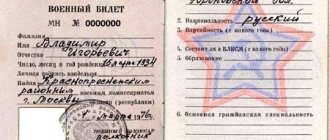What debts lead to a travel ban?
Financial obligations of Russians may include:
- mortgages and other types of loans;
- alimony;
- various types of taxes;
- communal payments;
- notarized loans from individuals;
- fines from the traffic police or the Federal Tax Service.
In an era of economic crisis, not everyone has the opportunity to make the necessary payments on time, and the presence of debts may result in a ban on leaving Russia. But in order for the debtor to be subject to restrictive measures, certain conditions must be met:
- The debt is in enforcement proceedings, that is, in the stage of forced collection by a court decision. If there was none, you will not be on the list of persons subject to the travel ban.
- The total debt obligations subject to judicial collection exceed 30,000 rubles, or there is a debt of more than 10,000 rubles for alimony.
Having a mortgage or loan and making regular payments will not prevent you from leaving the Russian Federation.
If you are planning a trip abroad, check in advance what kind of debt you will not be allowed to go abroad with.
For what debts is a travel restriction imposed?
Article 67 of the Law “On Enforcement Proceedings” contains the following list of debts for which the debtor may not be released from Russia:
| Debt amount | Nature of debt |
| 10,000 rubles. | - alimony; — compensation for harm to health; - compensation for damage in connection with the death of the breadwinner; - property damage caused by a crime; - moral damage caused by a crime. |
| 0 | - non-property requirements. |
| 30,000 rubles | — other requirements (including traffic police fines) |
| 10,000 rubles. | — other requirements in case of non-payment within 2 months from the date of expiration of the deadline for voluntary execution (including traffic police fines) |
Note: The writ of execution must be issued by a court or be a judicial act.
Please note that previously restrictions on traveling abroad were imposed in the presence of fines in the amount of more than 10,000 rubles.
Starting October 1, 2021, the rules have changed. The debtor may still be limited in traveling abroad if there is a debt of 10,000 rubles, but only after 2 months have passed from the date of expiration of the period for voluntary execution (5 days). Thus, if there is a debt, for example, in the amount of 15,000 rubles, the driver has additional time to repay it.
If the amount of debt is more significant (exceeds 30,000 rubles), then the restriction is imposed immediately.
How to check for a travel ban
When a claim for forced collection of a debt is filed in court, the debtor receives an official notice. But sometimes notifications do not reach the addressee - for example, if a person does not live at his place of permanent registration.
With debts on loans that are repaid ahead of schedule, unpleasant incidents often happen - when a few kopecks remaining unpaid accumulate large interest rates over time. You may also forget to pay fines to the traffic police and not know that the case has already been taken to court. In short, there may be situations where a travel ban may come as a complete surprise.
To prevent this from happening, before the trip you should check in advance whether there are any obstacles for it. This can be done on the websites of Nevylet, FSSP, Federal Tax Service (tax fines for entrepreneurs), “Gosuslugi” (fines through the Ministry of Internal Affairs) and credit organizations (bank loans), as well as at the border service. Find out more about how to check if there is a ban on traveling abroad.
Who imposes a ban on leaving the country?
The restriction on traveling abroad is imposed by the bailiff dealing with the driver’s debts. In this case, the restriction can be imposed either on the bailiff’s own initiative or at the request of the claimant.
Please note that the bailiff has the right to impose a restriction, but he is not obliged to do so. This means that a driver who has fine debts of more than 30,000 rubles does not necessarily have a ban on visiting other states. Those. The bailiff may not impose a restriction even if there are sufficient grounds.
It was discussed above that the executive document must be a judicial act or must be issued on the basis of a judicial act. However, decisions on administrative offenses are also made by traffic police officers, who are not courts. In this case, the bailiff has the right to go to court to impose a ban on traveling abroad.
Those. Without the participation of the court, restrictions on crossing the border cannot be imposed.
How the restriction is imposed and how long it lasts
The ban on traveling abroad for debt is imposed according to a certain scheme. If a court decision is made to forcefully collect a debt, it is necessary to pay the entire amount within five days or repay the debt in installments in accordance with the schedule established by the court. The execution of the court decision is controlled by bailiffs of the FSSP service in accordance with the Federal Law No. 229 “On Enforcement Proceedings”.
If the prescribed payments are not made on time, the bailiff applies for their forced collection (for example, by seizing accounts, deductions from wages), and also enters the debtor into the register of persons who are prohibited from traveling abroad.
When the bailiff issues a travel ban for the debtor, he sends a notification about this to the border and migration services. The restriction is valid for 6 months.
If during this time the citizen does not fulfill his financial obligations in full, the travel ban is extended for 6 months. And so on until all debts are repaid.
Who establishes a travel ban and how?
At the border, travelers can be stopped without any objective reason for the delay. Every traveler should know that not for every debt they have the right to stop him on the ramp and demand him to turn back. Only the court and bailiffs as executors of a court decision can establish a ban on release from the country.
So even if a citizen has a debt, but no one filed a lawsuit against him and no decisions were made to restrict his movement, then the FSSP cannot transfer data about him to the border guards. If a person has paid a debt, then the information reaches all authorities within a few weeks; this process is slow even in 2020.
Emergency lifting of the travel ban
The bailiff has the right to lift the restriction on leaving the Russian Federation in situations where force majeure circumstances require it. For example, if a relative living outside of Russia died. In this case, you should contact the bailiff and provide supporting documents. The bailiff has the opportunity to exclude the debtor from the register of citizens restricted from traveling abroad within 24 hours.
You can also cross the border with debts when you need treatment abroad. In this case, it is necessary to submit certificates from doctors.
Bans on traveling abroad for debtors
Ordinary citizens who are not of military age, do not serve in government agencies, have no criminal record, etc. sometimes fail to travel outside Russia. The reason for the ban on traveling abroad can be trivial debts to utility services, unpaid fines, taxes, alimony debts, under loan agreements, etc. You may also be interested in flying abroad with debts: how to find out if there is a ban.
To make your planned trip happen, pay off all existing debts on time! You can check the status of a citizen restricted from traveling abroad based on debt obligations via the Internet on the official websites of government agencies and banking institutions.
Is it possible to leave the Russian Federation through the countries of the Customs Union?
In some cases, you can leave Russia if you have debts through the countries of the Customs Union (CU). Border guards of these states check transit passengers only using international search databases, and they do not have access to the register of debtors of the Russian Federation.
In the past, many debtors left Russia for Europe via Belarus.
Since 2021, the bailiff services of the CU countries have begun to exchange data on defaulters, and a common register of persons who are prohibited from leaving the Russian Federation and Belarus is currently being compiled.
Now the route to Europe through the territory of its western neighbor is closed to Russian debtors, regardless of whether they travel by public transport or by car.
Which country would you rather live in? ⚡ Take the test in 2 minutes
There are no agreements between Russia and Lithuania that stipulate general travel bans for debtors. Therefore, if a citizen of the Russian Federation enters the territory of the republic, from there he can try to leave for any country in the Schengen zone. If you have a foreign passport with a Schengen visa, it is possible to travel with debts through Lithuania. Of course, when you are on the register of persons who are not allowed to leave the Russian Federation, you will not be allowed into the Baltic countries either. However, you can use gaps in Russian legislation that will allow you to circumvent the ban on traveling abroad.
Since debtors are not prohibited from moving around Russia, they can leave through Kaliningrad. To do this, you need to take a train ticket to Kaliningrad, which is in transit through Lithuania, and get off in Vilnius. After this, the path is open to any country in Western Europe. However, it should be taken into account that for such a trip, a foreign passport with a valid Schengen visa must be obtained before a decision is made regarding you to be included in the register of debtors. If you are already on the blacklist, you will not be able to issue a passport. It is also worth noting that there have already been cases when such passengers were dropped off on the train.
If you are planning a trip to Asia and the Middle East, you can leave Russia through Kazakhstan. To do this, you need to take two tickets - to Petropavlovsk and transit. The border with Kazakhstan is crossed using a transit ticket. After passing border control, you can continue your journey with a ticket to Petropavlovsk, and from there you can go to any other country.
You can return to Russia in any way. Border guards have no right to prohibit a citizen of the Russian Federation from entering their home country. But remember that there is no guarantee that you will not be detained. There is liability for violating the ban on leaving the Russian Federation (according to Article 18 of the Federal Law “On the procedure for leaving the Russian Federation and entering the Russian Federation”).
If border guards discover that you left the country with travel restrictions in place, your passport may be confiscated.
And you won’t be able to get a new one until you fulfill your financial obligations and are officially removed from the register of debtors.
How to lift a ban on foreign travel
The restriction on leaving the Russian Federation is lifted after full repayment of the current debt. The ban is also canceled if the executive document on debt collection is declared invalid or its action is stopped (as a result of an appeal of a court decision or for other reasons).
If we are talking about a loan from a private person, the amount of which is collected through the court, the parties have the right to enter into a settlement agreement or use another compromise option. When the collecting organization is excluded from the state register of legal entities, debt obligations in relation to it may also be invalidated.
After the expiration of the 6-month period, the restriction on travel for debtors is not automatically extended - it takes time for the court to issue a new ruling and for the bailiff to renew the ban. The procedure may take several weeks, during which the restriction on leaving the Russian Federation is lifted.
On our website you can read more about how to lift the ban on traveling abroad.
How can the ban on traveling abroad be lifted?
There are no difficulties with restrictions on the travel of special categories of citizens - the reasons for including those “restricted to travel” in the database are clear. If a ban on traveling abroad applies to a person who has debts, you can leave the country at any time as soon as the enforcement proceedings are closed.
The ban may be lifted on the following grounds:
- the citizen's debt was fully repaid;
- the debtor received an installment plan or deferment of debt payment;
- the debtor and the claimant came to a peaceful agreement;
- the judicial act, after the issuance of which enforcement proceedings were initiated, was canceled.
To be completely sure that the travel ban is lifted, the following steps must be taken:
- contact the bailiff, meet with him and present a photocopy of the receipt for payment of the debt;
- take from the bailiff a photocopy of the resolution lifting the ban on leaving Russia (must be certified with the signature of the senior bailiff and a seal with the coat of arms);
- request information about sending a copy of the decision to the Central Division of the Border Service and the waiting period for the lifting of the travel ban.
If a citizen is sure that he has been unfairly assigned debts and that he has always paid his bills on time, he has the right to challenge the ban on leaving the country in the Main Department of Migration of the Ministry of Internal Affairs or in court. You can write a complaint to the prosecutor via.
If a refusal to issue a permit to cross the border was received by a person with access to state secrets, he can file a claim with the court at the level of the constituent entity of the Russian Federation at the place where the negative decision was made. Military personnel who wish to challenge the command’s decision regarding the issuance of permission to travel abroad can appeal to a military court.
FAQ
Having debts, especially those falling under the jurisdiction of the Federal Bailiff Service, is not a very pleasant situation that raises concerns about the future. Here are some questions that are most often asked by debtors who want to leave the Russian Federation on vacation or on business.
Which countries can you travel to with debts?
If a travel ban applies to you, then officially and directly - not at all. If you have debts, but court proceedings have not been opened and there is no travel ban, then you can safely visit other countries.
Is it possible to go abroad if your last name has changed?
According to Part 2 of Article 19 of the Civil Code of the Russian Federation, a citizen’s change of surname is not grounds for termination or change of his rights and obligations acquired with his previous personal data. When a passport is issued under a new surname, a notification about this is sent to the BKI (credit history bureau), the tax service and other official authorities. In addition, the fact of a change of surname is noted on the new identity card.
Even if the bailiff has not yet managed to correct your personal data in the register of travel bans, the question of whether you will be released abroad if your last name has changed remains controversial. If you want to go to a country that can be visited using an internal passport of a citizen of the Russian Federation, border guards will check not only your new, but also your previous data in the debtor database, and will not allow you to leave. And to travel abroad (even to countries with which Russia has a visa-free regime) you will need a foreign passport. If you are included in the list of restricted citizens, the migration service will be notified about this. Therefore, even if you have a civil passport with a new surname, you will not be given a foreign passport for it.
If, having changed your last name, you evade payments ordered by the court, you will be put on the wanted list. Then the border service is guaranteed to detain you.
Is it possible to travel abroad with an installment plan?
If there is an installment plan, crossing the border is possible if the debt restructuring is formalized through the court. To get an installment plan, you need to contact the bailiff and prepare a petition to the courts. If you pay off a set percentage of the debt at once, the remaining balance can be paid in stages.
The court's decision to restructure the debt will be the basis for removing you from the list of citizens restricted from traveling abroad. But in order to move freely around the world, you must make all assigned payments on time. Otherwise, you risk being restricted from leaving again.











